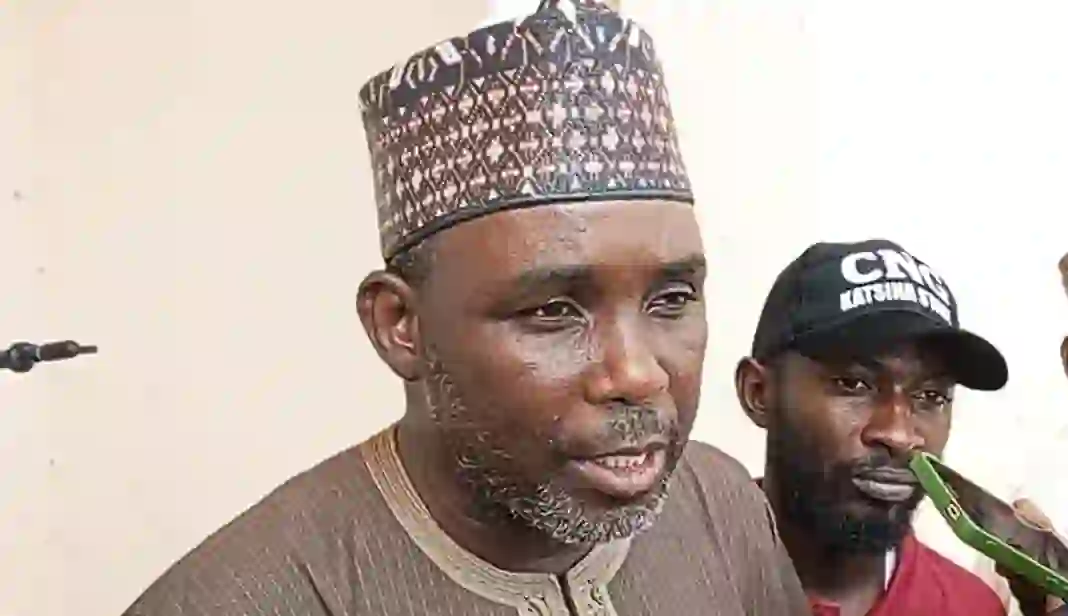As the economic fortunes of the nation continue to dwindle with no respite in sight, a Northern Youth Group under the auspices of Coalition of Northern Youth Group, has decried the impact of the recent devaluation of the Naira, inflation, petroleum subsidy removal, increase in electricity tariffs, and insecurity, among others, on the conditions of living in Northern Nigeria.
The Group lamented that the country “is no longer working”, outlining the failures of formal and informal institutions, that has over the years compounded the challenges.
President of the Group, Jamil Charanchi in a statement said that the Northern Youths have no time to lament as it is crystal clear that the nation is in a serious and devastating state.
Charanchi added that Nigeria is no longer working and is no longer at ease, as People are suffering.
“People can no longer afford even one square meal. We are not talking about the three square meals per day.
“Insecurity is walking with two legs in the northern part of the country.”
At a one-day community engagement programme organized by the CNG Katsina State chapter under the theme: “Imperative of Popular Participation in Tackling Socio-Economic Challenges Bedeviling Nigeria Through Community Solutions”, Charanchi gave background on the informed decision for community engagement, saying the group has realized that leaders especially from the region are not ready to address the outlined problems, hence there was a need for them to take the bull by its horns in the contribution of the development of the region.
“Northern Nigeria, a region rich in cultural heritage, human and natural resources, holds significant potential for contributing to Nigeria’s development.
“Despite this, the region remains the least developed, grappling with drug abuse, youth restiveness, the collapse of social values, and high levels of poverty, unemployment, illiteracy, and insecurity, which translate socio-economic indices in relation to other regions.
“To tackle the region’s persistent challenges, the Coalition Northern Groups implemented several interventions, including a two-day roundtable insecurity in Northern Nigeria held in January 2024 at the Nigerian Air Resource Center in Abuja. Despite these efforts and some progress made, the North continues to experience a rise in banditry and other issues, indicating the need for increased commitment from all stakeholders to effectively address these problems,” Charanchi said.
He said “The recent devaluation of the Naira, inflation, petroleum subsidy removal, increase in electricity tariffs, and insecurity have further deteriorated the living conditions of the people.
“Millions of people lost their means of livelihood and wallowed in abject poverty. The consequences of these challenges have become more apparent during the recent violent national protests against hunger and general hardship, which have resulted in significant loss of life and destruction of public and private properties.
“In response to these pressing issues, the CNG recognizes that for decades, Northern Nigeria has been suffering from leadership decay, collapse of societal values, immorality, and lack of leadership values. These challenges have over the years culminated in a pervasive leadership crisis leading to poverty, unemployment, and illiteracy, evident in the high number of out-of-school children and insecurity across the North.”
He said the CNG believes that “there is a need for a paradigm shift from government-based to society-based solutions that would enable comprehensive assessment and a coordinated approach to
address the underlying causes of these challenges by the members of the community.”
Charanchi noted that the recent violent protest is a consequence of decades of failure by northern Nigeria’s political leadership to harness the potential of the region.
“At the same time, the failures of formal and informal institutions have over the years compounded the challenges. Hence, there is a need for collective action to address these challenges and promote development in the region.
“This engagement aims to examine the current state of affairs in Northern Nigeria, focusing on the rising moral decadence among our youths and, the socio-cultural and economic challenges facing the region. It seeks to highlight the critical need for increased community involvement in the management of their affairs,” he said.
Speaking during the event, the representative of Katsina State Governor and Commissioner for Information, Bala Zango said the administration of Governor Dikko Radda since coming on board initiated laudable programmes aimed at tackling the socio-economic development of the citizens.
“Governor Dikko Umar Radda, as part of efforts to bridge the gap, had initiated scholarships for indigent students in foreign lands to study medicine and AI among others.
“Katsina State has become a role model in tackling insecurity by creating a ministry for internal security, establishing and engaging over 1500 Community Watch Corps which solved the issue of insecurity to 70 per cent.
“Katsina also spent over N30 billion Naira on agriculture. Radda administration employed 7,000 teachers, renovation of schools with learning materials,” he said.
Discover more from The Source
Subscribe to get the latest posts sent to your email.








